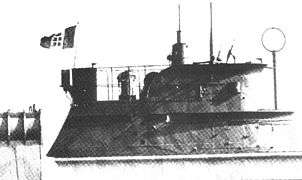Italian submarine Scirè (1938)
 Turret of Scirè, 1941 | |
| History | |
|---|---|
| Name: | Scirè |
| Namesake: | the northern part of Ethiopia |
| Builder: | Odero-Terni-Orlando, Muggiano[1] |
| Laid down: | 30 January 1937[1] |
| Launched: | 6 January 1938[1] |
| Completed: | 25 March 1938[1] |
| Fate: | depth charged, 10 August 1942[1] |
| General characteristics | |
| Class and type: | 600-Serie Adua-class submarine |
| Displacement: |
|
| Length: | 60.18 m (197 ft 5 in) (oa) |
| Beam: | 6.45 m (21 ft 2 in) |
| Draught: | 4.6 m (15 ft 1 in) |
| Propulsion: |
|
| Speed: |
|
| Complement: | 46 |
| Armament: |
|
The Italian submarine Scirè (also known as Sciré or Scire in English) was an Italian Adua-class submarine, which served during World War II in the Regia Marina. It was named after the Ethiopian region, at the time part of Italian East Africa. At the beginning of the war, Scirè was commanded by Junio Valerio Borghese, and based in La Spezia. Early in the war, she was modified to carry three mini submarines (maiali).
In 1940 Scire made it first foray into the Bay of Gibraltar intent on sabotage of the British ships in Gibraltar Harbour with three manned torpedoes. None of the three were successful with the most daring getting stuck 100 metres from HMS Barham. The crew were forced to withdraw and the explosion of the torpedo's only achievement was to tip off the defenders of Gibraltar Harbour. They organised for boats to drop small charges into the water each night that would have proved fatal to any diver in range of the shock wave.[2]
The Scirè entered the Bay of Gibraltar again in September 1941 with better results than the previous time. Three tankers were attacked and a 2000-ton Fiona Shell was sunk whilst another two ships were damaged. The Italians decided to create a permanent base in Spain eventually converting a ship called Olterra that was moored off Algeciras into a permanent base for naval sabotage.[2]
The Scirè accomplished many missions inside enemy waters. Among these, the most important was carried out on 3 December 1941. Scirè left La Spezia carrying three manned torpedoes. At the island of Leros in the Aegean Sea, it secretly loaded six crew for them: Luigi Durand de la Penne and Emilio Bianchi (maiale 221), Vincenzo Martellotta and Mario Marino (maiale 222), Antonio Marceglia and Spartaco Schergat (maiale 223). On 19 December, Scirè reached Alexandria in Egypt, and its manned torpedoes entered the harbour and sank in shallow waters the British battleships HMS Valiant, Queen Elizabeth and damaged the tanker Sagona and the destroyer Jervis. All six torpedo-riders were captured and the battleships returned to service after several months of repairs.
During one of these missions, on 10 August 1942, Scirè sank, damaged by depth charges dropped by the British naval trawler Islay in Haifa bay, about 11 kilometres (5.9 nmi) from the harbour. The Islay was captained by Lieutenant Commander John Ross of North Shields, Tyne and Wear who was later awarded the Distinguished Service Cross for his actions.
The wreck of the Scirè, lying at a depth of 32 metres (105 ft), became a popular diving site and Shayetet 13 training location. In 1984 a joint Italian-Israeli Navy ceremony was performed, in which the forward section was removed from the submarine and sent to Italy to become part of a memorial. A movie of that submarine taken by Ramy Sadnai can be seen here.
References
External links
Coordinates: 33°0′10″N 34°0′12″E / 33.00278°N 34.00333°E